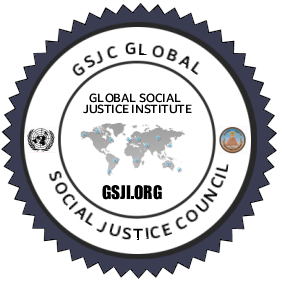GLOBAL SOCIAL JUSTICE INSTITUTE
tion with employers and provide assistance to migrant workers and their fami- lies. Similarly, the Convention stipulates that migrant workers and their families are obliged to comply with the law of the host State. The Convention distinguishes between legal and illegal migrant workers. It does not require that equal treatment be extended to illegal workers but rather aims to elimi- nate illegal or clandestine movements and employment of migrant workers in an irregular situation. 1.7 The Declaration on the Right to Development
| ||
Virus Justice Italian Freedom Day J23 History of Racism Book-HR Join Commission Ethics Badges Site Map Education Policy Agenda Top Social Justice Issues Anti Slavery Book Truth and Justice Commission USA Ethnic Justice Truth and Justice Commission * Anti Slavery Society - Election Intrigrity George Mentz Colorado Springs Coronavirus Biden Fault Negligence |
Accreditation Bodies: www.GAFM.com * www.GAFM.org * www.CertifiedProjectManager.eu * www.AAFM.org * Certified Project Manager * Certified e-Commerce Consultant * Royal Law Society * Royal Business Society * Royal Business College * Royal Fellows * Royal Economics Academy * Oxford Law School * AAFM * Certified International Project Manager *

